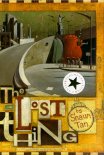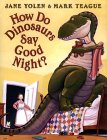 |
E-mail Locus
Subscribe to Locus Magazine
|
 |
 |
SFFH Reviews and Articles in General Publications
Monday 28 May 2001

 •
What possible reasons could Locus Online have to reference publications like GQ and A&F Quarterly? Why, because science fiction is everywhere. (Admittedly these are somewhat belated notices; check your dentist's waiting room.)
•
What possible reasons could Locus Online have to reference publications like GQ and A&F Quarterly? Why, because science fiction is everywhere. (Admittedly these are somewhat belated notices; check your dentist's waiting room.)
- The March GQ has (page 330) a 6-page spread by Elizabeth Gilbert profiling Forrest Ackerman and his Ackermansion, under the title "My Favorite Martian".
- For the Abercrombie & Fitch crowd, writers are cool; the Summer quarterly catalog has 1-page interviews with Michael Cunningham, Bruce Jay Friedman, and Clive Barker (page 266):
So do you struggle against the horror label? It doesn't bother me now. It used to bother me. But you know, you can't do anything about it. I know that the books change people's perception. ... Ten years after I'm dead, nobody will give a shit whether I was called a horror author, a fantasy author, a science-fiction author. I'll just be an author.
These items are not online; the GQ and Abercrombie & Fitch websites are remarkably content-light.
Sunday 27 May 2001

 § Publishers Weekly 5/21/01
§ Publishers Weekly 5/21/01
Dorman T. Schindler interviews Connie Willis about her new novel Passage (Bantam), her writing habits, and what's next. (A portion of this same interview previously ran in the Denver Post.)
"My mother died when I was 12," she says. "She died very suddenly. Since that moment, I have not thought about anything else, basically. It's probably what made me a writer. I do think it gave me a different perspective. I'm not saying it made me clinically depressed, it just made me look at the world differently. The rest of the world, I find, to my horror, goes blithely along thinking nothing is ever gonna go wrong. And they're shattered when it does. Never for a moment have I believed that."
§ JAM! Showbiz May 26, 2001
You've heard all about Nancy Stouffer, the author suing Harry Potter creator J.K. Rowling and her publishers for allegedly appropriating ideas from Stouffer's 1984 small-press The Legend of Rah and the Muggles? Here's a review of the reissue of Stouffer's book, by Deepti Hajela.
Meant to be a children's tale, Stouffer's book is an excruciating mix of cliche, preachiness and just poor writing.
§ January May 2001
Claude Lalumière reviews Richard Lupoff's Claremont Tales (Golden Gryphon).
§ The American Prospect June 4, 2001
Long article by Chris Mooney about the critical tides of Tolkien scholarship.
In 1956 W.H. Auden wrote in The New York Times that, in some respects, Tolkien's story of the hobbit Frodo's quest to destroy the Dark Lord Sauron's "One Ring" of power surpassed even Milton's Paradise Lost. But that same year, Edmund Wilson, at the time America's pre-eminent man of letters, dismissed The Lord of the Rings as "balderdash" in a review for The Nation titled "Ooh, Those Awful Orcs." Wilson also swatted at Tolkien defenders like Auden and C.S. Lewis, observing that "certain people--especially, perhaps, in Britain--have a lifelong appetite for juvenile trash."
Monday 21 May 2001

 § Connie Willis
§ Connie Willis
Reviews of Passage (Bantam):
[I]t's one of the smartest books I've read in years; its construction is a marvel of ingenuity and -- what's even more remarkable, given the wizardry of Willis' storytelling -- its intellectual honesty is impeccable.
 § Karen Joy Fowler
§ Karen Joy Fowler
Fowler's new novel is Sister Noon (Putnam), set in 1890s San Francisco and "laden with historic fact and fancy, mystery, voodoo, frontier rough-and-tumble and turn-of-the-century social conventions" (PW), with two reviews this week:
In Fowler's novel, voodoo goddesses, high-society villains and repressed do-gooders tangle over an agitated orphan named Jenny whose mysterious origins are at the center of the book's secrets.
A playful, mysterious, highly imagined narrative set in the San Francisco of the 1890's. ... Here is a novelist who absolutely comprehends the pleasures of imagination and transformation.
 § London Times 20 May 2001
§ London Times 20 May 2001
Nicolette Jones reviews Shaun Tan's picture book The Lost Thing (Lothian), first published last year in Australia and being released in the UK on 24 May:
The book is full of teasing small print, jokes and quirkiness -
every page asks to be pored over. It has the eccentricity of Gary
Larson and the atmosphere of Edward Hopper.
§ Publishers Weekly 5/14/01
An article on the 25th anniversary of Mysterious Press.
§ Amazon & Amazon UK
Several undated interviews have been posted recently:
Friday 18 May 2001

 § BookSense.com May 15, 2001
§ BookSense.com May 15, 2001
The website's Very Interesting People section has an essay by Jane Yolen about how she came to write How Do Dinosaurs Say Goodnight?. The latest feature is an interview with Daniel Quinn about his book After Dachau. Other recent entries are with George Saunders (The Very Persistent Gappers of Fripp) and Albert Goldbarth.
BookSense editor Gavin J. Grant offers a tribute to Douglas Adams.
Sunday 13 May 2001

 § Guardian May 13, 2001
§ Guardian May 13, 2001
Here's an profile and interview of Eoin Colfer, whose Artemis Fowl (Hyperion/Talk Miramax Books) is being positioned as the next Harry Potter.
I met Eoin Colfer in London. He is short, grey and worried. I liked him immediately. He believes in his book, is dazed by its precocious career but sanely points out that publishers can't tell' what will be a bestseller. He fears 'being set up to be knocked off the pedestal'. He believes it nonsensical to compare Artemis to Harry Potter: 'It is like comparing an apple with an orange,' he says. He admires Rowling but has never had any 'interest in emulating her'.
§ New York Times Book Review May 13, 2001
Richard Davenport-Hines reviews Diane Jacobs's Her Own Woman: The Life of Mary Wollstonecraft (Simon & Schuster).
§ Washington Post Book World May 13, 2001
A special issue on children's books include a brief profile of artists Leo & Diane Dillon, and a column by Andrea Gollin on several YA fantasies by Paul Zindell and others.
§ January May 2001
Claude Lalumière reviews Linda Nagata's Limit of Vision (Tor)
§ The Age 7 May 2001
A profile
of "Australia's leading fantasy writer" Sara Douglass, who lives in a big old house with a ghost named Mrs Hannah Bloomfield.
Wednesday 9 May 2001

 § The New Yorker May 14, 2001
§ The New Yorker May 14, 2001
A 'Briefly Noted' review of Jonathan Carroll's The Wooden Sea (Tor) [posted this week only].
Frannie McCabe, a mellowing middle-aged former bad boy who is now the police chief of a Hudson Valley town, opens the trunk of his car to discover the body of the pet pit bull he has just buried. But then things get weird, and not just Carl Hiaasen weird; McCabe finds himself teamed up with his seventeen-year old self in a time-travel fantasy- thriller, set almost entirely in his home town but involving aliens, cold fusion, and a sinister twenty-first-century Dutch entrepreneur. The result is a quirky piece of intelligent pop that is also surprisingly moving.
§ The Onion A.V. Club May 9, 2001
The serious review-arm of the satirical online and print magazine reviews Connie Willis's Passage (Bantam):
In Passage, [Willis] explores a more overtly emotional topic--life after death--with luminous clarity, walking the fine line between science and spiritualism with the confidence that comes from having a solid story and a powerful agenda. ... [A] complex, finely crafted, haunting story that makes the light at the end of the tunnel impossible to take lightly. --Tasha Robinson
§ FEED Magazine May 9, 2001
Steve Johnson talks with Cory Doctorow -- "Chief Evangelist" and "Spokesmodel" for OpenCola -- "about his bid to reinvent the intelligent agent". Here's Doctorow's OpenCola Polemics and Whitepapers.
Monday 7 May 2001

 § Washington Post Book World May 6, 2001
§ Washington Post Book World May 6, 2001
Gregory Feeley reviews Tananarive Due's The Living Blood (Pocket), contrasting it unfavorably to the author's short fiction...
which generates great emotional intensity through understated use of language and dramatic situations. Nothing about The Living Blood is understated, and its themes -- the horror of seeing one's child in danger, and the steps a parent will take to avert this -- are pretty operatic even absent a secret brotherhood of immortals.
 Also, Andrew C. Ervin reviews Andrew Crumey's Mr. Mee (Picador), about an octogenarian amateur book collector in search of an obscure encyclopedia via the Internet, with strong parallels to the work of Jorge Luis Borges...
Also, Andrew C. Ervin reviews Andrew Crumey's Mr. Mee (Picador), about an octogenarian amateur book collector in search of an obscure encyclopedia via the Internet, with strong parallels to the work of Jorge Luis Borges...
It's the rare novel that makes you want to begin anew as soon as you've finished the last page. When Crumey finally puts the final, unexpected pieces of his puzzle into place and the depth of the story becomes clear, many readers will be tempted to take it apart and start again from scratch. The many surprises and twists uncovered the first time through provide a rare and spectacular reading experience, one that no amount of rereading will capture again. As Borges might have said: You can never step in the same river once, much less twice.
 Publishers Weekly [not online]
Publishers Weekly [not online]
April 9: Starred review for Tad Williams's Otherland: Sea of Silver Light (DAW):
This stunning finale to the gigantic Otherland tetralogy (City of Golden Shadow, etc.), a brilliant fusion of quest fantasy and technological SF, is sure to please Williams's many fans. ... a major accomplishment.
The April 16 issue has a feature article by Kimberly Winston on SF and religion, "Other Worlds, Suffused with Religion", with comments from Algis Budrys, Pepperdine prof Michael Collings, Greg Bear, Warner Aspect editor Betsy Mitchell, Octavia Butler, Ballantine associate publisher Kuo-yu Liang, Del Rey editor Chris Schluep, and others; and a sidebar about the Mormon SF of Orson Scott Card.
April Field Inspections
|

 •
What possible reasons could Locus Online have to reference publications like GQ and A&F Quarterly? Why, because science fiction is everywhere. (Admittedly these are somewhat belated notices; check your dentist's waiting room.)
•
What possible reasons could Locus Online have to reference publications like GQ and A&F Quarterly? Why, because science fiction is everywhere. (Admittedly these are somewhat belated notices; check your dentist's waiting room.)


 § London Times 20 May 2001
§ London Times 20 May 2001 § BookSense.com May 15, 2001
§ BookSense.com May 15, 2001



